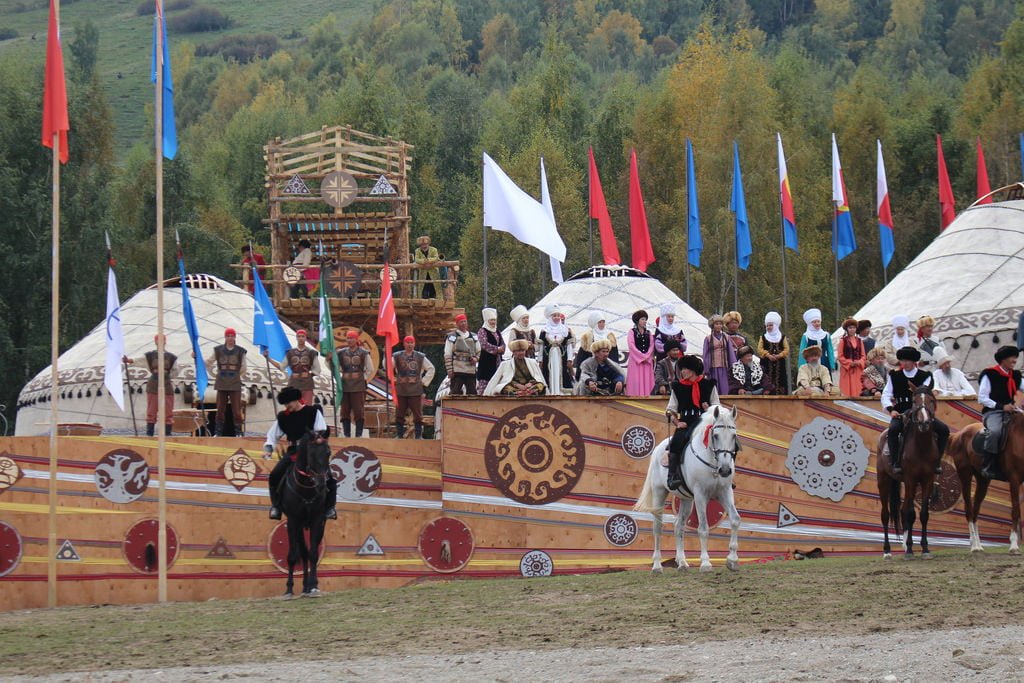Nomadic culture leaves a deep and colourful imprint on Eurasian history. Nomadic empires first arose as shadow empires in response to the centralisation of China according to one of the main academic debates.
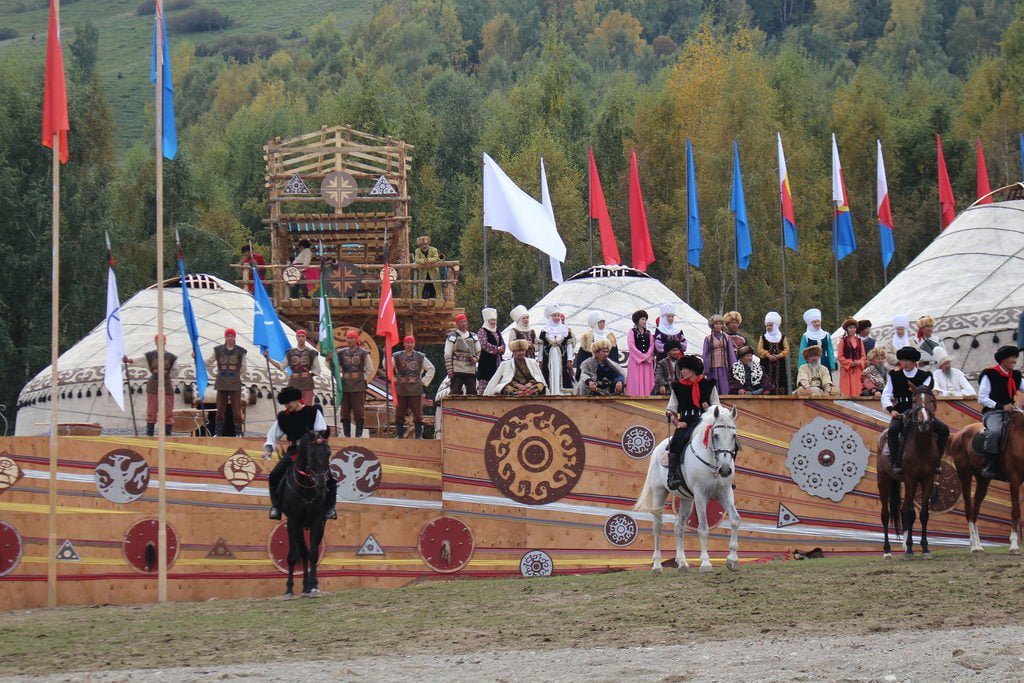
On the eastern side of the steppe, necessity forced the nomads into creating a centrally-administered Mongolia to conduct potentially violent business with China in order to maintain their existence. They did not have the capacity to fight China head-on as their existence was built around their mobility in small numbers – entirely distinct from the sedentary cities of the Chinese empire. Nomadic groups aimed to preserve their mobile lifestyles, yet not in conquered lands. They adopted an imperial-style administration system where they ruled indirectly through boyars or Russian noblemen collecting taxes for them.
Some argue that the arrival of the Mongol Empire contributed to the emergence and construction of the European nation state. In contrast, to the west of the steppe, nomads made a living not by violent negotiations but by dominating the trading network. These groups created the political framework for the Silk Route through policies providing security to the caravans crossing Eurasia, ensuring the smooth working of the trade network that potentially contributed to European unity.
The World Nomad Games thrives to revive, preserve and develop this unique history and ethnocultural particularities of the nomadic civilisation in order to foster more tolerant and open relationships between people in the age of globalisation and amidst the political and economic regional transformations.
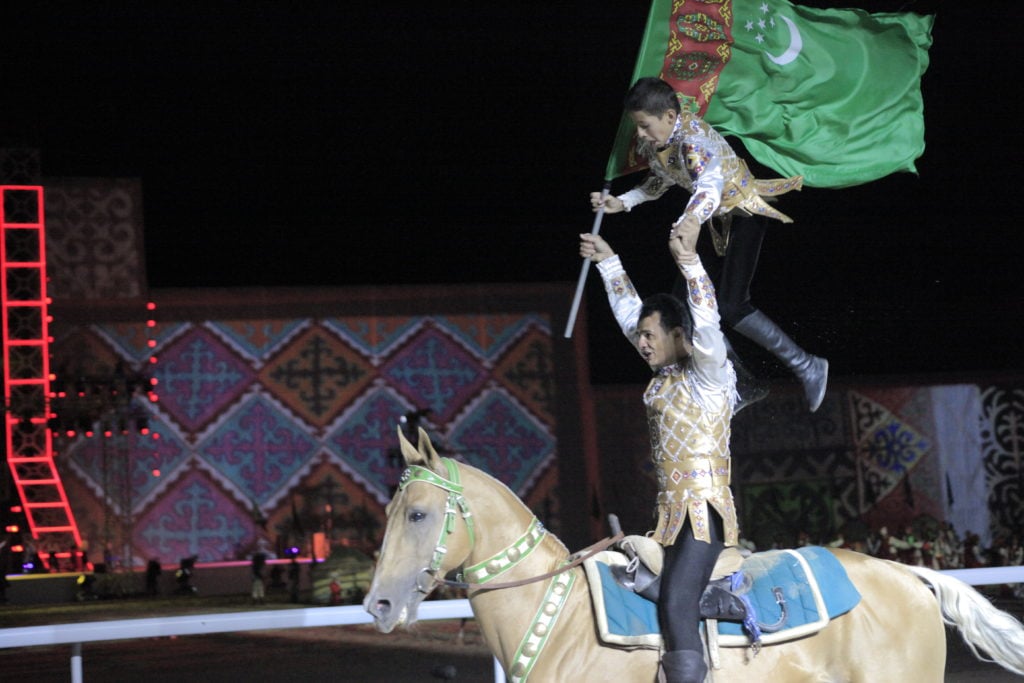
Every two years, beginning from 2014, the Games take place in the lakeside town of Cholpon-Ata, in the Issyk-Kul province of Kyrgyzstan, although the hosting location is set to change for future games. This year, athletes from 74 countries participated in 37 traditional nomad games, involving horse games, wrestling, martial arts, archery, hunting and intellectual games. The zeinth of strength and showmanship is found in horse game of Kok Boru (sometimes known as Buzkashi). The game is described as a fusion between rugby and polo, with two teams competing to throw a headless carcass of a goat into a goal at each end of the field. Traditionally the winner would take the carcass home and cook it up in a feast.
Er Ernish, another Kyrgyz sport, sees two athletes wrestle on horseback seeking to dismount their opponent. Wrestling is the most represented sport at the Games with fifteen different types on offer from the participating countries, including Alyh, or belt wrestling, where the participants throw the opponent on the ground by grabbing their belt around their waist.
Participants do not only compete in ethnosports but also in everyday activities of nomads, such as yurt building, hunting with a golden eagle (Burkut Saluu), falconry (Dalba Oynotuu), dog racing, and hunting (Taigan Jarysh).
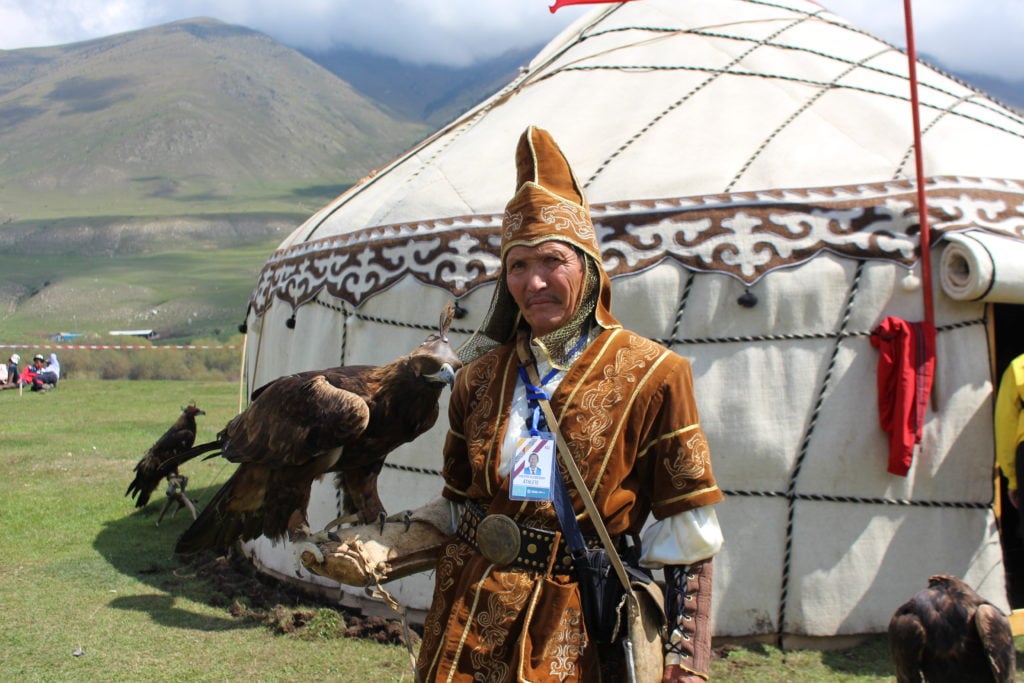
While Cholpon-Ata hosts the sports games, the cultural base is the town of Kyrchyn Jailoo in the mountains, displaying performances of Kyrgyz customs, entertainment and games and those of the participating countries. These ethnocultural shows introduce the dances, fashion, bazaars, and music of the nomads – embracing their originality and diversity. In the extensive yurt camp set up both by the official organisers and local Kyrgyz families as accommodation, guests can experience Central Asian hospitality, traditional cuisine, horse taxis, and hot air balloon rides in the mountains.
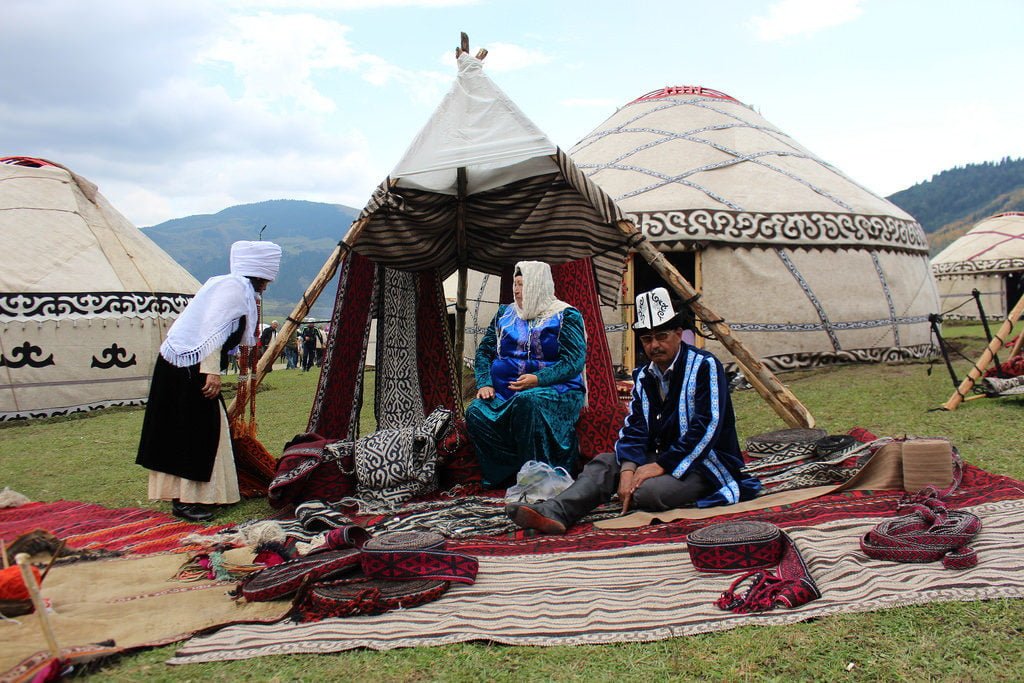
Unsurprisingly, the 2018 World Nomad Games were won by Kyrgyzstan, with Kazakhstan in second, and Russia on the third place. At the closing ceremony, Kyrgyzstan ceremonially handed a vessel of glacial water -the totem of the Games symbolising simultaneously both life and the difficulty of finding fresh water – and the book of great winners to Turkey, who will host the next Games in 2020.
The World Nomad Games were broadcasted all over the world in over 60 countries, the sports, traditions, cultures and lives of nomads reached hundreds of millions of people. With such an extensive celebration of the nomadic culture and history the commentator of the second Games was right: ‘If Genghis Khan were alive, he would be here’.
